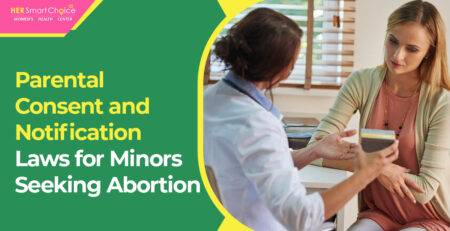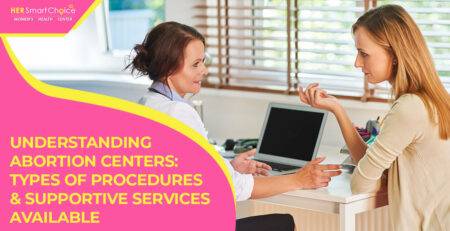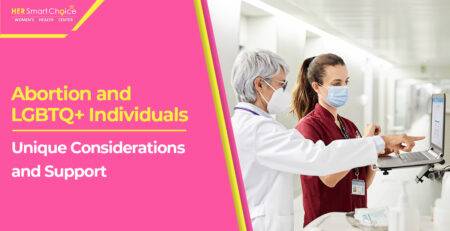Where to Get an Abortion Pill: Options in Los Angeles

Navigating where to get safe and confidential abortion care is a vital concern for many. This guide offers clear pathways to find local abortion clinics, understand medication abortion options like the abortion pill, explore financial assistance, decipher state laws, access telehealth services, and arrange necessary support and travel. By combining practical clinic-finding strategies with current information on mifepristone and misoprostol, insurance, and discreet aftercare, you’ll find actionable steps and compassionate resources. Whether you’re looking for a free abortion clinic or wondering about abortion clinic availability in Los Angeles, this article covers every essential aspect: finding, accessing, and completing your abortion care with confidence and legal clarity.
Follow Us!
How Do I Find Abortion Clinics Near Me?
Finding a nearby abortion clinic starts with understanding the services available and ensuring they meet local requirements. A women’s health clinic network typically provides in-person consultations, surgical procedures, and medication abortion. Using clinic locators and community hotlines can simplify your search. Verifying a clinic’s accreditation and reading patient reviews builds trust before you book an appointment.
What Services Do Abortion Clinics Provide?
Abortion clinics offer both medication and in-clinic procedures, tailored to your stage of pregnancy and personal preference. Medication abortion uses mifepristone and misoprostol, while in-clinic options include vacuum aspiration and dilation and evacuation. Clinics often bundle counseling, STI testing, and contraception services into a single visit. This comprehensive care ensures your medical safety and emotional well-being throughout your experience.
How to Choose a Trusted Abortion Provider?
Accredited providers are licensed, follow medical best practices, and employ experienced clinicians. Look for clinics recommended by national reproductive health organizations and read patient testimonials that highlight compassion and confidentiality. Accreditation from recognized bodies signifies high safety standards. A trusted provider will discuss all your options without judgment and always respect your privacy.
What Are the Steps to Locate a Nearby Clinic?
Start by searching “abortion clinic near me” on reputable locator sites or by contacting a local reproductive health hotline. Refine your search by filtering for clinics that offer free or sliding-scale fees, especially if you’re looking for a free abortion clinic. Confirm appointment availability by calling during business hours and ask about virtual scheduling options. Have your identification, insurance information, and any required referrals ready.
Can I Access Confidential and Safe Abortion Care Locally?
Yes, most states protect your confidentiality through medical privacy laws. Clinics implement private intake procedures and secure your records to safeguard your identity. Rules regarding minor consent and mandatory waiting periods vary by state, so it’s important to check local regulations before your visit. Clinics dedicated to safe abortion care train their staff to handle sensitive information with discretion and respect.
What Are My Medication Abortion Options? Understanding the Abortion Pill

Medication abortion, commonly known as the abortion pill, is a non-surgical method to end an early pregnancy using oral medications. It involves a two-step process: mifepristone, which stops the pregnancy from progressing, and misoprostol, which causes uterine contractions to complete the abortion. This method is effective, private, and often available through outpatient clinics and telehealth services. It can be used up to 10 weeks of pregnancy, offering a safe and convenient option.
What Is Medication Abortion and How Does It Work?
Medication abortion involves taking mifepristone first to halt pregnancy development, followed by misoprostol to initiate uterine contractions. This process is similar to a natural miscarriage and typically occurs within 24 to 48 hours after taking misoprostol. Clinical studies confirm its effectiveness rate of 95–98% when used under medical supervision. Clear instructions and follow-up care ensure a safe and complete abortion and minimize potential complications.
Up to How Many Weeks Is the Abortion Pill Effective?
The abortion pill is approved for use up to 10 weeks of pregnancy. Some providers may extend this to 11 weeks based on a medical assessment. While effectiveness may slightly decrease after nine weeks, it generally remains above 90% with standard protocols. Confirming your gestational age through an ultrasound or by calculating from your last menstrual period is crucial for eligibility and optimal results. These gestational limits are in place to protect patient safety and comply with FDA guidelines.
What Are the Benefits and Considerations of Medication Abortion?
Medication abortion offers privacy, avoids a surgical setting, and allows you to recover at home with guidance on pain management. Common side effects include cramping and bleeding, similar to a heavy period. Serious complications, such as an incomplete abortion, occur in less than 5% of cases and are usually resolved with follow-up care. It’s important to consider your access to emergency medical care if needed and maintain reliable communication with your provider.
Can I Get Abortion Pills by Mail or Through Telehealth?
Yes, many providers offer virtual consultations and can mail abortion pills directly to your home in states where this is permitted. The telehealth abortion process involves an online review of your medical history, an eligibility screening, and secure shipment of the medication. Legal restrictions vary by state, so confirm telehealth availability in your area before scheduling. This approach significantly improves access for those living far from clinics and supports discreet care.
Telehealth for Medication Abortion: Efficacy and Safety in the United States Telehealth-facilitated abortion has become crucial for managing increased demand in states where abortion remains legal. However, evidence regarding its efficacy and safety is limited. The California Home Abortion by Telehealth (CHAT) study is a prospective investigation that followed individuals who obtained medication abortion via telehealth from three virtual clinics operating across 20 states and Washington, D.C. between April 2021 and January 2022. Participants were screened using a standardized no-test protocol, primarily relying on their medical history to determine medical eligibility. We evaluated efficacy, defined as the successful completion of abortion following administration of 200 mg of mifepristone and 1,600 μg of misoprostol (or less) without requiring further intervention. Safety was assessed by the absence of serious adverse events. We estimated these rates using multivariable logistic regression and multiple imputation to address missing data. Among 6,034 abortions, 97.7% (95% confidence interval (CI) = 97.2–98.1%) resulted in a complete abortion without subsequent known intervention or ongoing pregnancy after the initial treatment. Overall, 99.8% (99.6–99.9%) of abortions were not followed by serious adverse events. Specifically, 0.25% of patients experienced a serious abortion-related adverse event, 0.16% required treatment for an ectopic pregnancy, and 1.3% of abortions were followed by emergency department visits. No significant differences in efficacy or safety were observed between synchronous and asynchronous models of care. Telehealth medication abortion is effective, safe, and comparable to published rates for in-person medication abortion services. Effectiveness and safety of telehealth medication abortion in the USA, LR Koenig, 2024
Research confirms that telehealth medication abortion is both effective and safe, performing comparably to in-person services.
How Safe Is the Abortion Pill According to Medical Authorities?
The abortion pill is recognized as very safe by the World Health Organization and the FDA, with over two decades of global use demonstrating a low rate of serious adverse events. Studies show it has fewer complications than surgical methods for early pregnancies. Regular monitoring and clear instructions from licensed providers further minimize risks. Safety data consistently show that medication abortion is a reliable option for eligible patients.
How Much Does an Abortion Cost? Understanding Abortion Pill and Clinic Fees
The cost of an abortion varies depending on the method used, gestational age, and clinic location, typically ranging from $300 for early medication abortion to $1,500 for procedures later in pregnancy. Insurance coverage and sliding-scale fees can often reduce your out-of-pocket expenses. Clear pricing helps you plan financially and avoid unexpected costs. Understanding the fee structure ensures you can access the most affordable care possible.
| Procedure Type | Typical Fee Range | Key Factor |
|---|---|---|
| Medication Abortion | $300 – $800 | Gestational limit |
| In-Clinic (First Trimester) | $500 – $1,200 | Clinic type |
| In-Clinic (Second Trimester) | $900 – $1,500 | Procedural complexity |
These fee ranges can help you budget and plan financially for abortion services.
What Factors Affect the Cost of Abortion Services?
The stage of pregnancy significantly impacts the price, as later procedures require more specialized care. Clinic accreditation and geographic location also influence fees; urban centers often have higher rates. Fluctuations in demand and provider competition can lead to regional cost differences. Transparency from clinics about what’s included—such as anesthesia and follow-up care—helps prevent unexpected charges.
Does Insurance Cover Abortion Services?
Private insurance plans and Medicaid cover abortion in many states, though restrictions may apply based on local laws. Some employers might exclude abortion coverage, requiring you to pay out-of-pocket. Verifying your plan’s reproductive health benefits and in-network providers can help reduce financial barriers. Clinics often have financial counselors available to assist with insurance claims and appeals.
Where Can I Find Financial Assistance for Abortion?

Nonprofit abortion funds, community grants, and travel scholarships are available to support patients facing financial challenges. State-specific funds and national organizations offer grants to cover procedure fees, travel, and lodging. Clinics and advocacy groups maintain directories of these resources. Connecting with a women’s health clinic counselor can quickly guide you to the right support networks.
How Can I Access Affordable or Free Abortion Care?
Free abortion clinics and sliding-scale fee programs make care accessible for uninsured or low-income patients. Federally qualified health centers may offer reduced-cost medication abortion. Campus health centers and community clinics often partner with funds to waive fees. Reaching out to these organizations early can help secure appointments before costs become prohibitive.
What Are the Abortion Laws by State? Navigating Legal Access and Restrictions
Abortion laws vary significantly across the United States, affecting eligibility, waiting periods, and parental consent requirements. States establish gestational limits, typically between six and 24 weeks, with some mandating ultrasounds or counseling sessions. Understanding your state’s legal framework is crucial for accessing care smoothly. Staying informed about legal updates ensures you comply with evolving regulations.
How Do State Laws Affect Abortion Access and Services?
State legislation determines abortion availability by setting gestational cutoffs, waiting periods, and facility requirements. Some states mandate a 24- to 72-hour waiting period between initial counseling and the procedure. Parental notification or consent laws are in effect for minors in many jurisdictions. Staying informed about these rules helps prevent unexpected delays and legal hurdles. surgical abortion services.
State Regulatory Requirements for Abortion Facilities In recent years, a growing number of states have implemented legislation mandating specific requirements for facilities where abortions are performed. This study aimed to elucidate the processes involved in developing facility standards within the context of other, less politically contentious healthcare domains, and to consider the implications for abortion care. The development of facility standards for common outpatient procedures and implications for the context of abortion, NF Berglas, 2018
The development of facility standards for abortion care is influenced by broader legislative trends in healthcare regulation.
Which States Allow Telehealth Abortion and Mailing of Pills?
As of 2025, telehealth abortion is permitted in states where providers can prescribe mifepristone remotely and mail the medication. States like Colorado and New York maintain telehealth access, while others prohibit mailing pills. A provider’s telehealth eligibility map can clarify service availability. Patients should confirm that their mailing address falls within an approved region.
How Can I Stay Updated on Changing Abortion Laws?
Reliable legal trackers from reproductive rights organizations and updates from state health departments provide timely information. Subscribing to newsletters from policy advocacy groups and legal organizations ensures you receive alerts on court rulings and new legislation. Clinics often provide state-specific law summaries for patients. Staying current helps you avoid surprises when planning your care.
What Are the Implications of Interstate Travel for Abortion Care?
Traveling across state lines may be necessary if your state has bans or severe restrictions. Interstate care involves coordinating transportation, lodging, and appointment scheduling in a state where abortion is legal. Patients should review the laws of both their home state and the destination state to avoid legal complications. Financial aid and escort services can ease logistical challenges and ensure safe travel.
How Does Telehealth Abortion Work? Accessing Abortion Pills Online Safely
Telehealth abortion offers an alternative to in-person visits by providing medical consultations and delivering pills directly to your home. After a secure virtual screening, eligible patients receive mifepristone and misoprostol by mail. This digital approach improves access for individuals in rural areas or those facing travel limitations. Telehealth combines medical oversight with the convenience of receiving care at home.
What Is the Process for Getting an Abortion Pill via Telehealth?
A telehealth abortion begins with an online medical intake form, followed by a virtual consultation with a licensed clinician. Providers review your medical history, confirm your gestational age, and assess any potential contraindications. Once approved, the provider discreetly ships the abortion pill package, including detailed instructions for use. Follow-up calls or video check-ins ensure the process is complete and safe.
Who Is Eligible for Telehealth Abortion Services?
Eligibility typically includes being under 10 weeks pregnant, not having certain pre-existing medical conditions, and residing in a state that allows abortion medication to be mailed. Patients with chronic illnesses or symptoms of an ectopic pregnancy may require an in-person evaluation. Clear eligibility guidelines help prevent contraindications and prioritize patient safety.
What Are the Benefits and Limitations of Telehealth Abortion?
Telehealth abortion offers enhanced privacy, reduces travel burdens, and allows for more flexible scheduling outside of typical clinic hours. However, limitations include state restrictions on mailing medication, potential shipping delays, and the absence of immediate on-site emergency care. Patients need reliable internet access and a private space for consultations. Weighing these factors helps you decide if it’s the best care option for you.
How Do I Verify a Legitimate Telehealth Abortion Provider?
Reputable telehealth services are licensed to practice in your state and follow FDA guidelines for distributing mifepristone. Look for accreditation from recognized telemedicine associations and clear privacy policies. Provider reviews and professional affiliations, such as membership in national reproductive health organizations, can confirm their trustworthiness. Ensuring these credentials protects your health and confidentiality.
What Support and Aftercare Are Available Before and After an Abortion?
Comprehensive abortion care includes emotional counseling, medical follow-up, and family planning services. Pre-abortion counseling helps you understand your options, while post-abortion visits confirm the procedure’s completion and address your recovery needs. Clinics often partner with mental health professionals to support your emotional well-being. Planning for aftercare ensures holistic health beyond the procedure itself.
What Counseling Services Are Offered Pre-Abortion?
Pre-abortion counseling provides unbiased information about all your pregnancy options, answers medical questions, and prepares you for what to expect. Licensed counselors offer emotional support, discuss contraception, and address any cultural or personal concerns you may have. This preparation supports informed decision-making and can reduce anxiety. Access to counseling hotlines ensures you have ongoing support.
What Should I Expect During Post-Abortion Recovery?
After an abortion, most individuals experience light bleeding and cramping for several days. Rest, staying hydrated, and using over-the-counter pain relievers can help manage discomfort. A follow-up appointment is scheduled to confirm the pregnancy has ended and to check your vital signs. Clinics advise avoiding strenuous activity for about a week and provide clear instructions on when to seek medical attention.
How Can I Access Contraception and Family Planning After Abortion?
Getting immediate access to contraception is key to preventing unintended pregnancies and supporting your reproductive autonomy. Clinics offer various birth control methods, such as IUDs, implants, pills, or condoms, often during the same visit. A family planning coordinator can explain the benefits, side effects, and correct usage of each option. Ensuring timely access to contraception is a vital part of comprehensive reproductive healthcare.
Where Can I Find Emotional and Mental Health Support?
Post-abortion emotional care options include support groups, one-on-one therapy, and peer counseling networks. National hotlines and local mental health clinics specialize in reproductive health support. Many women’s health clinics have licensed therapists on staff to facilitate seamless referrals. Ongoing emotional support contributes to your long-term well-being.
How Can I Prepare for Traveling to Get an Abortion? Tips for Out-of-State Care
Traveling for abortion care requires careful logistical planning, financial preparation, and awareness of legal requirements. Identify a clinic in a state with fewer restrictions, then arrange your transportation and lodging. Securing financial aid for travel from abortion funds can help offset costs. Thorough preparation ensures you receive timely and stress-free care.
What Are the Common Reasons for Traveling for Abortion Care?
Patients often travel because their home state has abortion bans, a shortage of providers, or restrictive waiting periods. Some choose out-of-state clinics for earlier appointment availability or specialized services. Factors like geography, safety concerns, and the need for privacy also influence travel decisions. Understanding these reasons can help you plan effectively.
How Can I Find Financial and Logistical Support for Abortion Travel?
Reproductive health funds and nonprofit organizations offer grants to cover procedure fees, transportation, and lodging. Community volunteers and carpool programs can assist with rideshares. Online directories list travel assistance resources by state. Contacting these services early ensures you receive timely approvals before your travel dates.
What Legal Considerations Should I Know When Traveling for Abortion?
Review the laws of both your home state and the destination state regarding abortion, telehealth restrictions, and parental consent rules. Some states may prosecute out-of-state providers or patients under specific circumstances. Keep documentation of your medical appointments and consult a legal aid hotline if you have any questions. Understanding and complying with the law helps prevent legal complications.
How Do I Plan My Appointment and Stay at an Out-of-State Clinic?
Schedule your clinic appointment well in advance and confirm the clinic’s cancellation policy. Book lodging nearby and arrange local transportation, such as rideshare services or public transit. Pack necessary medical records, identification, and your payment method. Having a clear itinerary can reduce stress and ensure you arrive prepared for your appointment.
No matter where you are, a trusted women’s health clinic can guide you through every step of your abortion journey. From finding a clinic to understanding medication abortion, arranging finances, navigating laws, and planning aftercare, you have clear options and supportive resources available. Confidentiality, safety, and compassionate care are central to every service offered. With this knowledge, you can access the abortion care you need, on your own terms and timeline.
Frequently Asked Questions
Use verified directories or contact Her Smart Choice to locate licensed clinics that follow all California laws and confidentiality standards.
The abortion pill is a non-surgical method for early pregnancies, while in-clinic procedures are recommended for later stages or personal preference.
Yes, telehealth abortion is fully legal and safe in California. Her Smart Choice offers confidential virtual consultations for eligible patients.
Costs vary by method and stage of pregnancy, ranging from about $300 for early medication abortion to $1,500 for later procedures. Financial help may be available.
Absolutely. All consultations, records, and communications are completely private, following HIPAA and California medical privacy laws.
Follow Us!
Disclaimer:
This article is for educational purposes only and should not replace professional medical advice, diagnosis, or treatment. Every individual’s health situation is unique. Always consult a qualified healthcare provider for personalized guidance.
Content reviewed by the medical team at Her Smart Choice Women’s Health and Abortion Clinic – Los Angeles, California. We provide confidential, compassionate, and medically supervised abortion and reproductive health care across Los Angeles, including Downtown LA, Santa Monica, Beverly Hills, and Pasadena.










